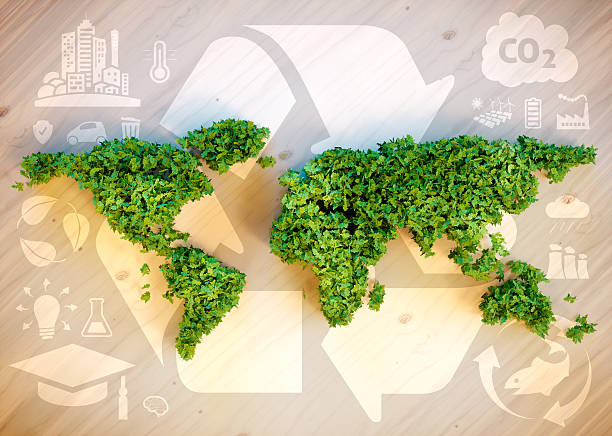Contact: +91 99725 24322 |
Menu
Menu
Quick summary: Sustainable food systems depend on farming, waste management, and supply systems. A sustainable food system delivers economically viable and socially beneficial food security to all. Blockchain technology provides a verifiable record as to who buys what from whom and this transparency helps consumers to adopt sustainable lifestyles.

Food Security is being pushed to the brink on account of the growing population.
The food on our plates is disturbing the planet on account of climatic change
Do you know that the solutions to these problems lie in the Food Ecosystem itself?
Achieving a Healthy and Sustainable Food future is urgent!
The UN defines Sustainability as “the idea that something like agriculture, food preparation or fishing is done in such a way that natural resources are not wasted and can be continued in the future without affecting the environment.”
Sustainable food systems depend on farming, waste management, and supply systems. A sustainable food system delivers economically viable and socially beneficial food security to all. Sustainable diets are those diets with a low environmental impact that contribute to food and nutrition security for a healthy life.
Approximately 13.7 billion metric tonnes of carbon dioxide equivalents are emitted throughout the food supply chain every year.

Food transformation on our plate is on the cards! Unlike other sectors, the ways to decarbonize your food is unclear.
Carbon emissions are an integral part of biological systems. Sustainable food trends will be the new consumer demand.
A Foodprint measures the environmental impact associated with growing, manufacturing, transporting, and storing of food, right from the natural resources consumed, pollution, and the greenhouse gases emitted.

Though the major areas related to sustainability cover environmental impacts like carbon footprint, renewable resources, waste management, water use and packaging, post covid, there has been a considerable shift towards social and health issues
More food must be produced on farmlands with minimal environmental impact. Technology innovations are crucial to bringing this change. Efficient usage of agricultural inputs like water, fertilizers, pesticides, recovering energy from agriculture waste, and sequestering carbon in the soil a are few of the practices that can be adopted.

Usage of renewable energy resources for transport and manufacturing processes can reduce post-harvest emissions. Inventory management and innovations in packaging can improve the shelf life of products and reduce food wastage. Nutritional objectives can be met with optimized farming practices and proper labeled information.
Breeding and feeding strategies for livestock help to reduce methane emissions and also helps in producing leaner dairy products.
A majority of consumers look for products that make them live sustainable and socially responsible life. The growth in eco-labels has been a major trend with Organic being the most popular. The others include Rainforest Alliance and Fairtrade.
Linking diets with human health and environmental sustainability, there have been targets developed for healthy food systems. Transformation to a healthy diet by 2050, will require major dietary shifts. Global consumption of fruits, vegetables, cereals, nuts, and unsaturated oils will have to increase and the consumption of meat, refined grains, and sugar has to reduce.
Pasteur-raised meats and plant-based meats are the latest trends.

Food Sustainability encompasses all the activities of production, processing, transportation, packaging and consumption of food. The various choices that could be adopted are

Both consumers and producers have major roles to play in sustainable food practices.
While the consumers can do conscious shopping, eating, and disposing of, the producers have a larger responsibility of sourcing sustainable food and adhering to sustainable and welfare practices.

The brands today promise Sustainability and the Food supply chains need to deliver this. This implies that there is a need for transparency and traceability from source to consumption. The consumer’s demand for sustainable food products drives visibility and product authenticity in supply chains. The upstream visibility with the provenance of inputs and materials, and information sharing with other stakeholders is critical. The downstream visibility of tracing the product’s lifecycle and establishing a digital thread is important. Product authentication builds trustworthy brands for the consumer and validation of certificates nurtures compliance to regulatory standards, giving a competitive edge. See how Sustainable Agriculture can build future brands
The World Economic Forum has set its goal toward accelerating Digital traceability for Sustainable production. Organizations need to redesign their supply chains with traceability, collaborate on a common platform to share secure, authentic data, and realize the sustainability goals for a safe planet.
Blockchain technology provides a verifiable record as to who buys what from whom and this transparency helps consumers to adopt sustainable lifestyles. The brands can leverage these claims to build sustainable brands and improve their sourcing and recycling practices. The traceability ensures provenance and eliminates the risk of counterfeit and fair trade.
Check how Blockchain technology has revolutionized the food ecosystem
The streamlining of the supply chain with immutable real-time records at every stage optimizes the processes and increases the productivity and profitability of organizations. This leads to the conservation of resources, reduced food wastage, and reduced financial costs.

FOODSIGN, TraceX’s blockchain-powered traceability solution provides supply chain traceability, product credibility, and food safety to the end consumer. The cloud-based SaaS platform provides end-to-end traceability, showcasing the entire product journey from farm to fork and ensures validation of all sourcing claims to realize trustworthy brands.
Check out our Solutions and connect with our Sustainability experts
Trust is the building block for ESG reporting and Blockchain technologies can lead the way forward to trusted and standardized sustainability
